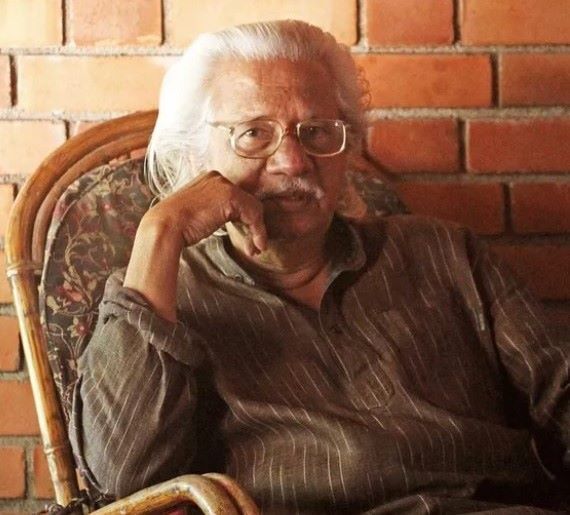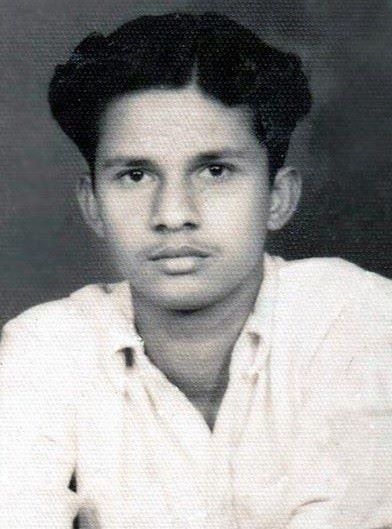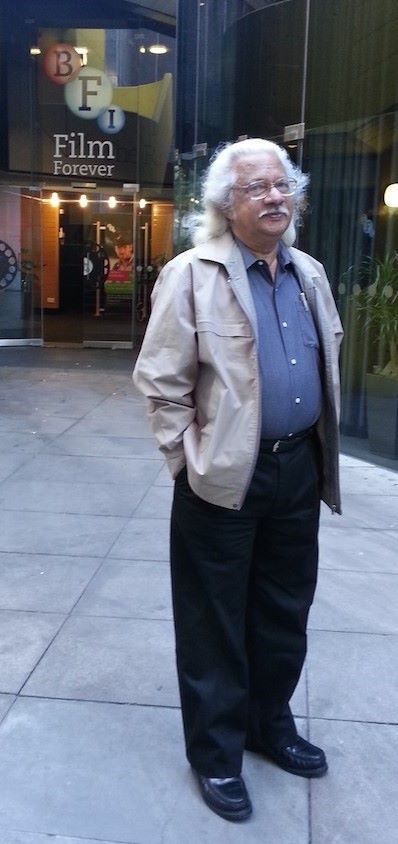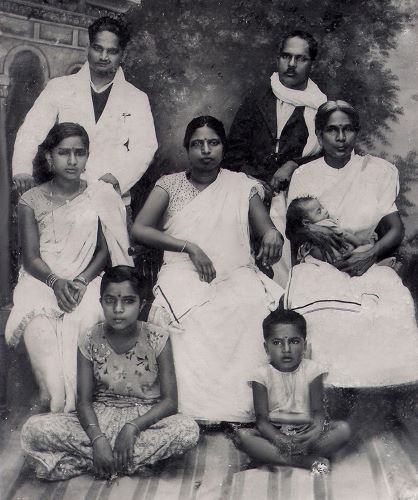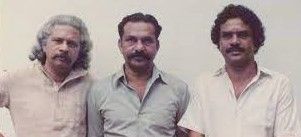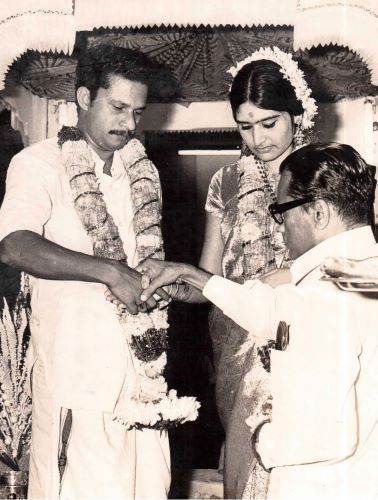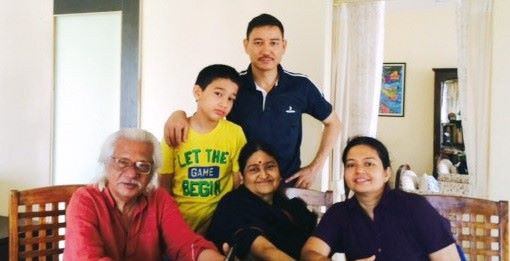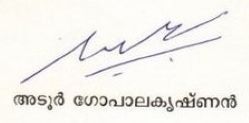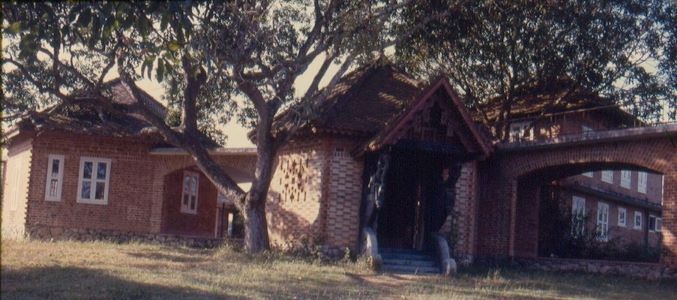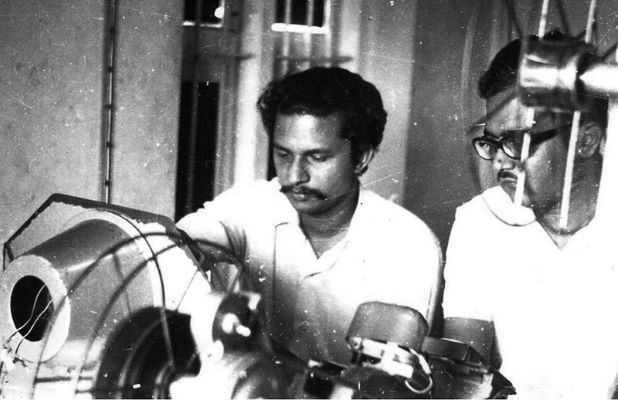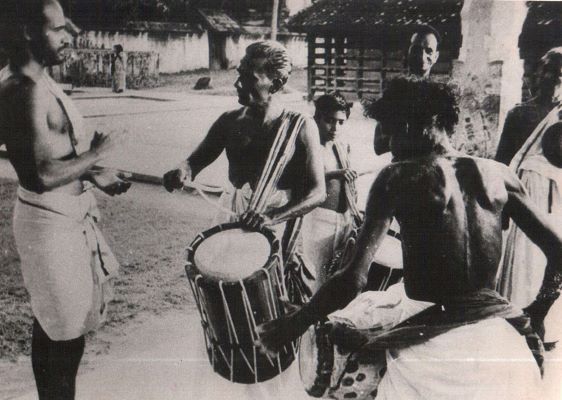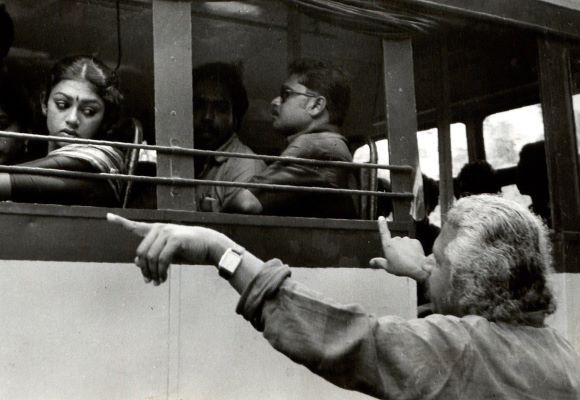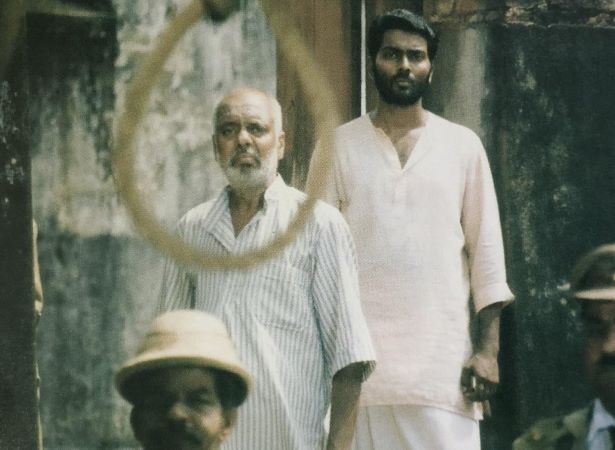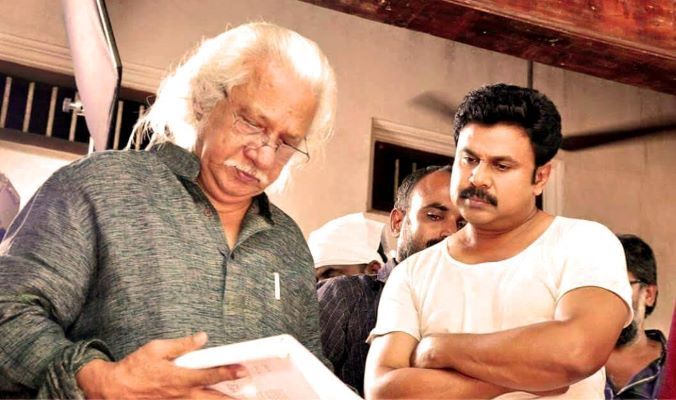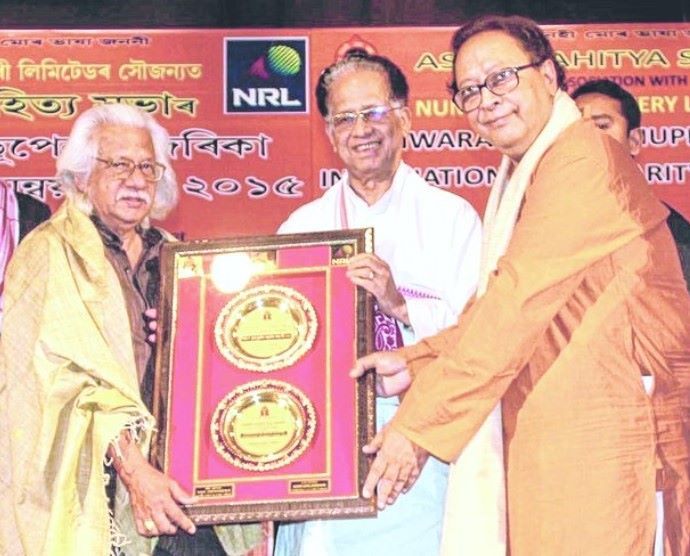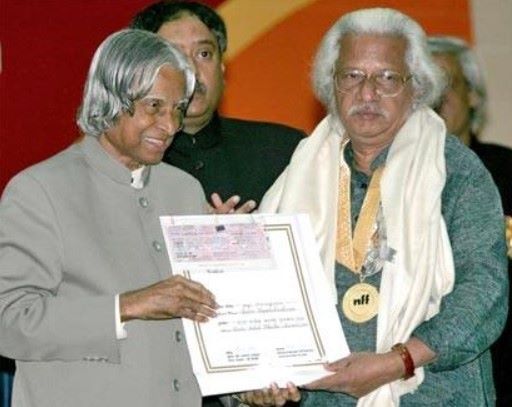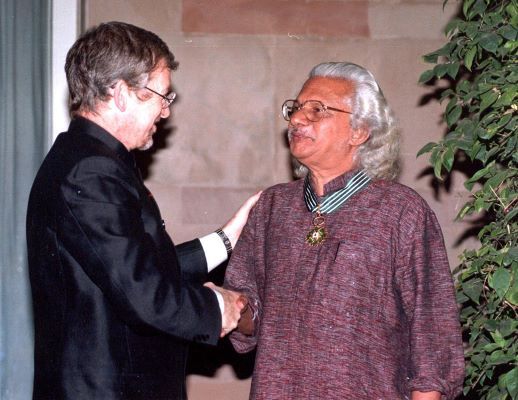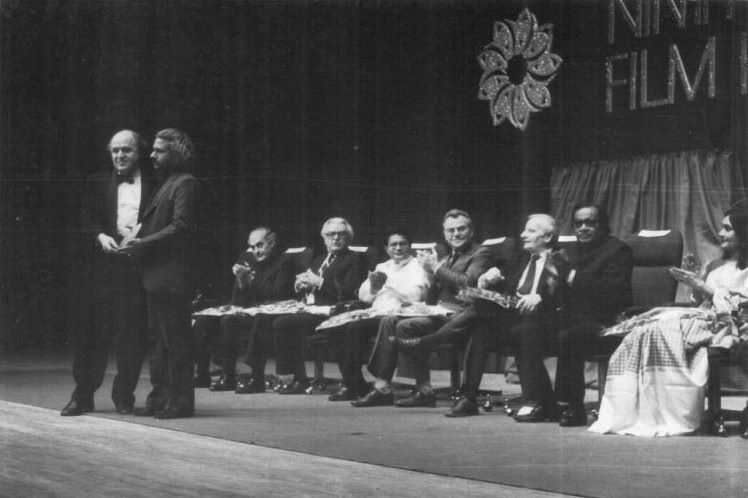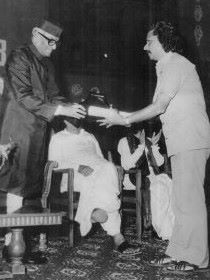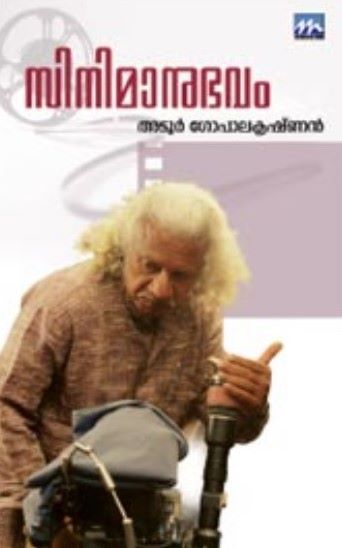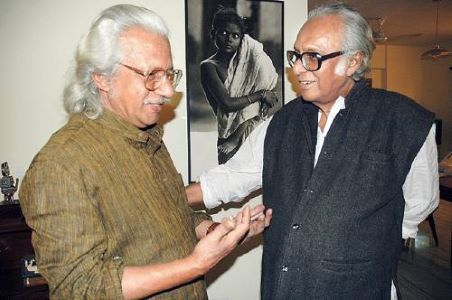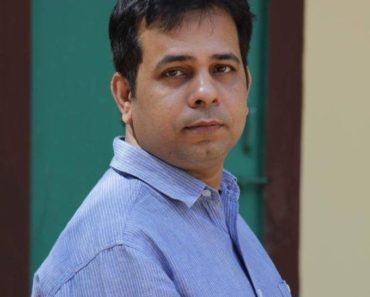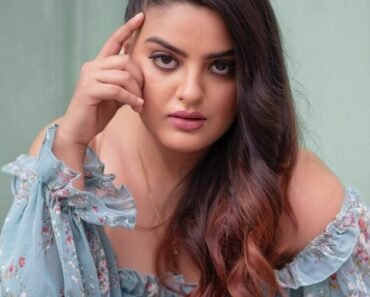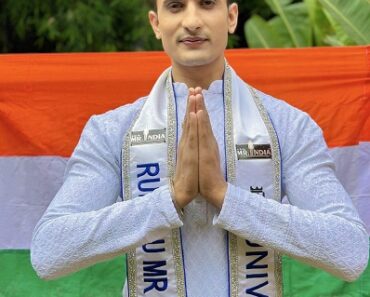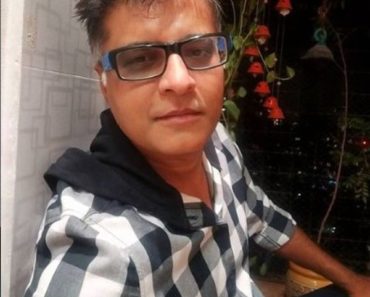Adoor Gopalakrishnan is an Indian film director, scriptwriter, and producer from the Malayalam film industry. He took the lead in the new wave film movement in Malayalam films during the 1970s. He is one of the founders of the first Film Society in Kerala known as Chitralekha Film Society and the nation’s first film cooperative known as Chalachitra Sahakarana Sangham. He has published several books and articles on cinema. As of 2023, Adoor has scripted and directed 12 feature films and over 30 short films and documentaries. He is known for the films Swayamvaram (1972), Kodiyettam (1978), and Elippathayam (1982).
Contents
Wiki/Biography
Mouttathu Gopalakrishnan Unnithan, popularly known as Adoor Gopalakrishnan or most times simply Adoor, was born on Thursday, 3 July 1941 (age 82 years; as of 2023) in Medayil Bungalow, Pallickal, Adoor, Travancore, British India (now, Pathanamthitta District, Kerala, India). His zodiac sign is Cancer.
His lower primary school education was at GLPS, Thuvayoor in Adoor. He did a Bachelor of Arts degree in Economics, Political Science, and Public Administration from The Gandhigram Rural Institute, in Dindigul, Tamil Nadu. After a brief stint as a government official, he completed his diploma in screenplay writing and advanced film direction in 1965 at the Film Institute of India, Poona which is now known as the Film and Television Institute of India (FTII), Pune.
Physical Appearance
Height (approx.): 5′ 8″
Hair Colour: Grey
Eye Colour: Black
Family & Caste
Adoor is from a Keralite Hindu family. He belongs to the Unnithan subcaste of the Nair community. He abandoned using the subcaste title in his name by age 20.
Parents & Siblings
Adoor Gopalakrishnan’s father was Madhavan Unnithan, and his mother was Mouttathu Gauri Kunjamma. He was the second but last of their five children. His siblings are Savithri Kunjamma (deceased), Sarojini Kunjamma, Prof. Ramachandran Unnithan and Ayyappan Unnithan (deceased).
Wife & Children
Adoor married his wife, Sunanda in September 1972. She was a homemaker and passed away in 2015, after suffering from cancer disease.
Their daughter is an officer in the Indian Police Service from the Assam Cadre, Aswathi Dorje, IPS. His son-in-law Dr Chhering Dorje, IPS is also an officer in the Indian Police Service. His grandson is Tashi Norbu.
Religion/Religious Views
Adoor revealed that he is not an atheist, but follows Gandhian and secular ideologies. [1]Harmony India
Address
Adoor resides at Darsanam, Thiruvananthapuram, Kerala, India
Signature/Autograph
Career
Early Career
Adoor started his career as an investigator at the National Sample Survey in Dindigul, Tamil Nadu. His initial interest in the job was mainly because it required travelling to various places. The excitement faded for multiple reasons, one of them was that his passion for theatre was not satisfied. So, after over a year, he quit the job and joined as a student to learn about screenwriting and direction at FTII in Pune.
Non-feature Films
Adoor did his first short film, A Great Day (1964), as part of his education at the Film Institute of India in Poona which is now FTII in Pune. Light (1965), another short film, was also part of his diploma education. After receiving his diploma, he and his friend, Kulathur Bhaskaran Nair, established the first film society – Chitralekha Film Society- in 1965. Along with the film society, Adoor initiated and set up India’s first film cooperative known as the Chalachitra Sahakarana Sangham, with the idea of producing, distributing and exhibiting quality films. He actively participated in the management and functioning of the society.
Many of Adoor’s non-feature films provide an insight into the various performing art forms. Some of the short films and documentaries are The Myth (1967), Pratisandhi (1970), Yakshagana (1979), Krishnanattam (1982), Koodiyattam (2001), Kalamandalam Ramankutty Nair (2005), and Dance of the Enchantress (2007).
Film
Adoor’s debut feature film is Swayamvaram (1972) or One’s Own Choice which featured actors Madhu and Sarada in the lead roles. Though it had a rather cold release, the fate changed with the announcement of the National Awards. It won 4 national awards, 3 state awards, and an international Certificate of Merit at the Colombo Film Festival. It got featured in many international film festivals such as Nantes and Helsinki Film Festivals.
The film Kodiyettam (1977) or Ascent won many accolades inside and outside the country. Bharat Gopy played the lead character named Sankarankutty, which won him the National Award for Best Actor. The film was featured in various international film festivals such as La Rochelle, Berlin, and Munich among others.
Next came the film Elippathayam (1981) or Rat-trap which received international, national and state awards in various categories. The film received much acclaim globally and one of the reviews by Tony Ryans written in the global magazine, Time Out, was,
The treatment is extra-ordinary: using rats as his governing metaphor, Gopalakrishnan constructs the film like a cinematic rondo, making every composition and every camera movement count.”
The film Mukhamukham (1984) or Face to Face was about a revolutionary who faces the changing political and social conditions. The film bagged many awards and recognition from inside and outside the country. In his next film Anantaram (1987) or Monologue, Adoor made the protagonist narrate his story in the first person. It explores the effects of a mental illness caused by situations from the childhood of the protagonist.
The film Mathilukal (1990) or The Walls is a free adaptation of an autobiographical novel of the same name by Vaikom Muhammed Basheer. The protagonist Vaikom Muhammed Basheer played by Mammootty, goes through different meanings of freedom as the film progresses. This film also participated in many international film festivals.
According to Adoor, the film Vidheyan (1993) or The Servile is a psychological study of the effects of power on the oppressed and the oppressor. The next film Kathapurushan (1995) or The Man of the Story is a period film that explores the impact of societal changes over a period through the life and writing of the protagonist. The film Nizhalkuthu (2002) or Shadow Kill portrays the emotions and life of an executioner, played by Oduvil Unnikrishnan.
The film Nalu Pennungal (2007) or Four Women is a free adaptation of various short stories written by the author, Thakazhi Sivasankara Pillai. The film depicts the stories of four women from different strata of society. The next film Oru Pennum Randaanum (2008) or A Climate For Crime is a compilation of different stories with the common backdrop of crime. The film Pinneyum (2016) or Once Again featured actors Dileep and Kavya Madhavan in the lead roles, showcasing the societal impact of unemployment and earnings on a middle-class family.
Controversies
Allegation of Casteism in the Film School, KRNNIVA
Adoor resigned from the chairmanship of the K. R. Narayanan National Institute of Visual Science and Arts (KRNNIVA) in Kottayam, Kerala over allegations of caste discrimination and related charges against a colleague and director of the institute, Shankar Mohan. His support for the director and his resignation sparked various discussions. [2]The Times of India
Awards, Honours, & Achievements
- In 2017, he received the J. C. Daniel Award for Lifetime Achievement in Cinema.
- In 2015, he received the Biswaratna Dr Bhupen Hazarika International Solidarity Award for his contribution to cinema.
- In 2014, he received the Deshikottama Award (D. Litt) from the Visva-Bharati University in Santiniketan.
- In 2013, the University of Wisconsin in Milwaukee inaugurated The Adoor Gopalakrishnan Film Archive and Research Fund for the preservation and promotion of the study of his films.
- In 2009, he received the Lifetime Achievement Award at the Cairo International Film Festival (CIFF) 2009. [4]Hindustan Times
- In 2006, Adoor received Padma Vibhushan, the second-highest Civilian Award from the Government of India.
- In 2004, he received the Dadasaheb Phalke Award, the highest award in the field of Cinema in India.
- In 2004, Adoor was honoured with the title of Ordre des Arts et des Lettres (Commander of the Order of Arts and Letters), the top French honour for his contribution to the field of films.
- In 1984, he received the National Award for Best Book on Indian Cinema for his book Cinemayude Lokam.
- In 1984, he received Padma Shri, the fourth-highest civilian Award from the Government of India.
- In 1982, he received the Sutherland Trophy, the British Film Institute (BFI) Award for the Most Oriniative Film for the film Elippathayam.
- He received a total of 18 National Awards in various categories for his different films, out of which one is a Special Jury/ Special Mention Award for the non-feature film The Chola Heritage (1980).
- He received 17 Kerala State Awards of which 13 are in different categories for various films, 2 for his documentary films, one for his short film, and another for his book Cinemaanubhavam (2004).
- He received the FIPRESCI (International Federation of Film Critics) Award consecutively for six years (1984, 1987, 1989, 1994, 1997, and 2002) for the films Mukhamukham, Anantaram, Mathilukal, Vidheyan, Kathapurushan, and Nizhalkkuthu.
- He won 8 Kerala Film Critics Association Awards out of which 4 awards were in the Best Film category for the films Mukhamukham (1984), Mathilukal (1989), Vidheyan (1993), and Kathapurushan (1995) and the rest were in the Best Director category for the films Anantaram (1987), Mathilukal (1989), Vidheyan (1993), and Kathapurushan (1995).
- A retrospective of his films was conducted in The French Cinematheque in Paris in 1999.
- A retrospective of his films was conducted in Kolkata by the Seagull Foundation of Arts and Nandan, Slovenian Film Festival, and Munich Film Museum in 2009.
- He received the Ruby Jubilee Award from the Kerala Film Critics Association in 2016 for his overall contribution to the Malayalam film industry.
- He was part of the jury team for many of the international film festivals.
Favourites
- Film: Satyajit Ray’s The Apu Trilogy – Pather Panchali (1955), Aparajito (1956), The World of Apu (1959)
- Director: Satyajit Ray, Werner Herzog, Girish Kasaravalli
- Song: Oru Vattam Koodiyen; lyrics by O. N. V. Kurup and music by M. B. Sreenivasan
Facts/Trivia
- Adoor’s parents got separated during his childhood, and as a result, he grew up in a joint family with his maternal uncles, who influenced his reading and writing.
- His ancestral family favoured classical performing art forms such as Kathakali. They had a Kathakali troupe known as Kaliyogam. Since it was an integral part of his upbringing, he started writing and acting in plays at the age of eight.
- Adoor, in an interview, revealed that the conception to completion time for his films is usually five to six years. [5]Newsclick
- Adoor authored several books on cinema such as Cinemayude Lokam (The World of Cinema), Cinemaanubhavam (The Experience of Cinema), Pantrandu Thirakkathakal, and Cinema Samskaram.
- There are several books written on Adoor, such as The Films of Adoor Gopalakrishnan by Suranjan Ganguly and Face-to-Face: The Cinema of Adoor Gopalakrishnan by Parthajith Barua.
- During his school days, Adoor scripted and directed a drama titled Aniyara, which won the first prize at a state-level competition.
- The legendary filmmaker Mani Kaul and Bollywood actor Asrani acted in Adoor’s short film taken during his student days in the FTII.
- Adoor had a close relationship with the filmmaker Satyajit Ray. He was always among the invitees for Adoor’s film screenings. In one of Adoor’s interviews, he remembered how filmmaker Satyajit Ray laughed throughout the film Kodiyettam during its screening. [6]The New Indian Express
References

